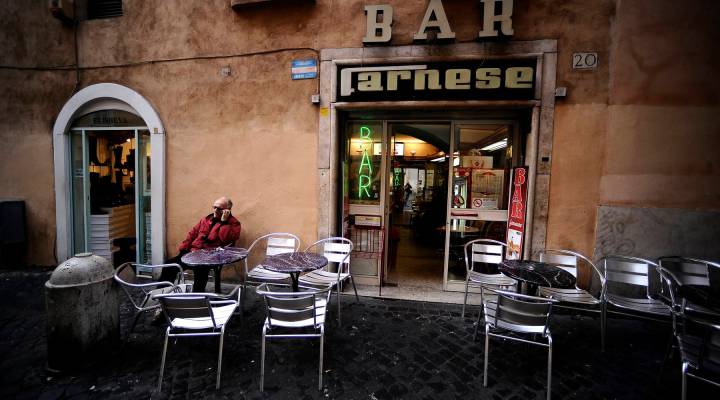
Italy allows businesses to open for 24 hours

Stacey Vanek Smith: One thing weighing on the markets this morning: worries about Italian bank, Unicredit. Italy’s Prime Minister Mario Monti has been passing measures to try and stimulate the country’s economy. For instance, starting January 1st, stores can legally stay open 24-hours a day. Italian stores had been restricted before — many couldn’t sell on Sundays or late nights.
The BBC’s correspondent Alan Johnston joins us now from Rome. Hello Alan.
Alan Johnston: Hi, hello.
Smith: How will keeping shops open 24/7 help the Italian economy?
Johnston: Well, it’s not just shops that are affected, it’s bars and restaurants as well. And the hope is that you’ll get a much more flexible sort of commercial environment, and shoppers are expected to like it.
Smith: There have been some serious objections in the last few days from what I understand, though. Why are some Italian shopkeepers against this?
Johnston: They worry that what you’re seeing here is the coming of a much more cut-throat, much more competitive type of environment. The shopkeepers say: if Italians don’t have any money — which they don’t at the moment, they would say because they’re taxed too heavily — then it doesn’t matter how long you stay open if the people haven’t got their cash to spend. The shopkeepers are opposed to this; they just want the government to look elsewhere for solutions to the economy’s very serious problems here.
Smith: Well, Alan, speaking of that — what are some of the other efforts that have been made to encourage Italian competitiveness?
Johnston: What we’ve seen so far has been cuts in government spending, and new taxes. But now we’re about to see what the government calls “Phase 2,” which is an effort to find ways to stimulate the economy, to create growth — which Italy very much needs — and to create jobs for young people.
What you notice really strikingly is that so many of the best and brightest young Italians tell you that they don’t feel there’s any future for them here, and that they’re talking about going away almost anywhere, work abroad where they feel they have more opportunities. And there’s going to be a lot of confrontation along this sort of battle line here in Italy in the months ahead.
Smith: The BBC’s correspondent Alan Johnston in Rome. Alan, thank you.
Johnston: Thanks very much.
There’s a lot happening in the world. Through it all, Marketplace is here for you.
You rely on Marketplace to break down the world’s events and tell you how it affects you in a fact-based, approachable way. We rely on your financial support to keep making that possible.
Your donation today powers the independent journalism that you rely on. For just $5/month, you can help sustain Marketplace so we can keep reporting on the things that matter to you.


















